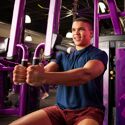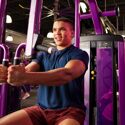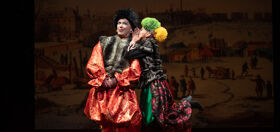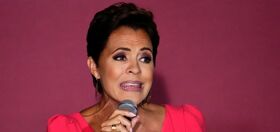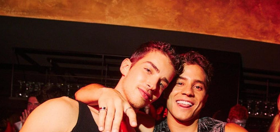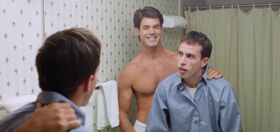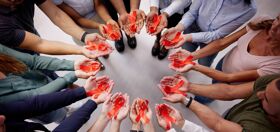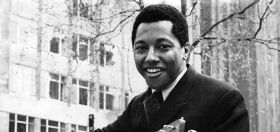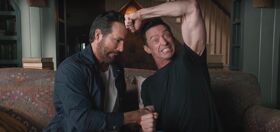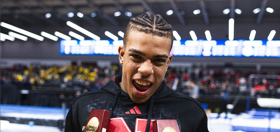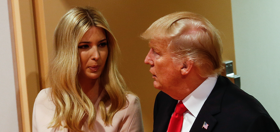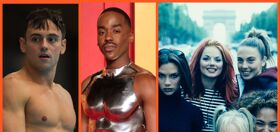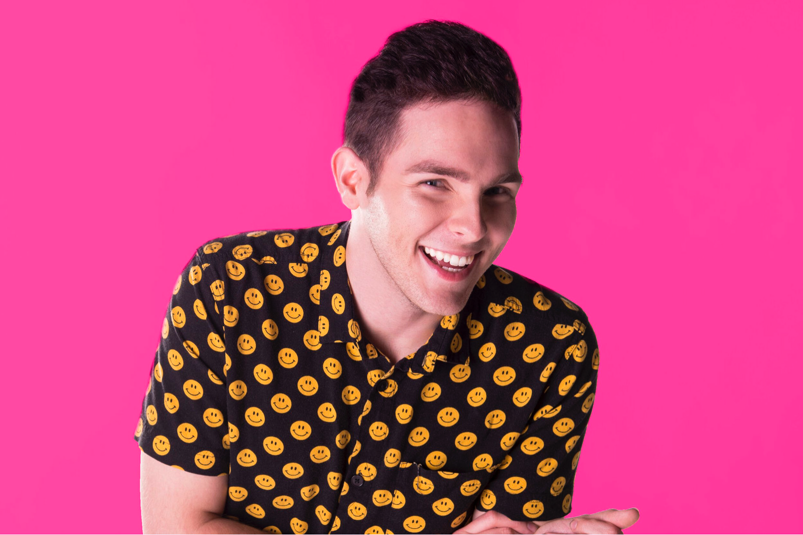
Planet Fitness has always been about making exercise accessible.
The national fitness company’s “Judgement Free” ethos is about ensuring the comfort of all members, who can get in a great workout without feeling judged or pressured. With that in mind, it’s only natural that its Pride initiative is all about inclusivity and self-expression.
Partnering with Baltimore-based designer Joey Donatelli, Planet Fitness’ You Belong® Pride collection leans into nostalgic looks from the fun-loving late 1990s and early 2000s, and the special You Belong® tank top and canvas bag can be used for everyday activities.
Even better: All proceeds benefit the It Gets Better Project, which is about ensuring that LGBTQ+ kids feel safe and secure in their own skin.
Based on a recent Planet Fitness study, 61% of teens face mental health struggles, and the numbers are even higher for LGBTQ+ youth. A recent Trevor Project study found that 45% of LGBTQ+ youth seriously considered committing suicide within the last year.
Given the strong correlation between physical and mental health, Planet Fitness wants everyone – especially LGBTQ+ teens – to feel comfortable within the Judgement Free Zone®.
With June being both Pride Month and the kick-off to summer, we thought it was the perfect time to catch up and chat with Joey Donatelli to learn about the message behind You Belong® and their background.
Here’s what they had to say…
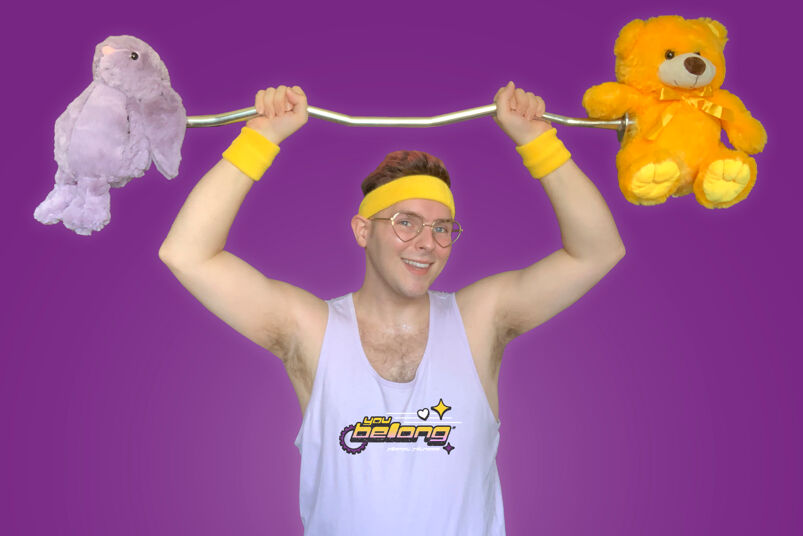
QUEERTY: How did you become a designer?
Joey Donatelli: As a child, I knew I wanted to pursue a creative and artistic career, as art was my main form of play. It gave me the opportunity to engage with my femininity in a way that wasn’t necessarily policed by those around me. I have also always loved the online and digital spaces; I spent a lot of time as a kid drawing on my laptop, which eventually grew into a love for digital illustration.
For a number of years, I actually wanted to pursue creating my own t-shirt line (I was extra into Johnny Cupcakes at the time), as I have always wanted to create designs that make people happy–myself included.
That said, I still didn’t really have a firm idea about what I wanted to professionally pursue when I graduated high school. I knew graphic design was an option, but I didn’t know what direction I wanted to take–until I got my first job at Ulta and became infatuated with all of the different makeup packaging that surrounded me. It gave me the opportunity to figure out what I liked and what I didn’t like– at least at the time–and from there, I knew I wanted to work professionally as a designer in the beauty sector. Along with my love for makeup, I also have an extreme affinity for dolls and toys, and I will at some point down the line delve into doll packaging, and maybe even release my own dolls. But that’s for future Joey to talk about.
What would you say is your design aesthetic?
I really do feel like a real-life cartoon character sometimes, and my portfolio definitely follows suit. I don’t understand why so many things around us are designed to be so aesthetically boring or utilitarian, and my work actively combats this.
Take my heart glasses: an arguably mundane object, but fun. The way I see it, if it can be cuter, make it cuter, and this sentiment definitely bleeds into my design aesthetic.
My femininity was heavily policed as a child. I was always drawn to Bratz and Barbies, princesses, TV shows geared towards girls. Unfortunately, I was not given access to those things. As I have grown and become a toy and doll collector, I have realized that one of the main goals in my work–particularly my personal work–is to encourage people to honor the voice of their inner child.
Like many other creatives, I use my work as a means to delve into my personal experiences.
We’ve noticed you are also working with one of our faves, drag queen Trixie Mattel. How did that come about?
Having the opportunity to work on projects for Trixie Mattel’s makeup brand has been a professional dream come true. I wish there were a less cliché way for me to say that, but it’s how I feel. Knowing that I get to work on projects that merge my two main interests –toys and makeup–while also being able to work with individuals that allow me to be unapologetically myself has made me insurmountably happy.
At times, I have felt like those around me have been dismissive of my ultra-feminine design work and general design aesthetic, and it is insanely gratifying to be in a freelance role where I know my queerness, femininity, and personal interest in toys are not only welcomed, but encouraged.
Given your work with Planet Fitness, how important is it to feel safe and welcome in a gym environment?
It’s important to feel safe and welcome in any environment, but especially in environments where people might feel a little nervous or vulnerable–like gyms. These athletic environments have historically been anchored by an overwhelmingly masculine energy, so it’s important that we take strides to make gyms safe spaces for everyone, especially those who may not initially feel comfortable deciding to go.
I appreciate Planet Fitness for its “Judgement Free” philosophy, because everyone deserves to feel safe and welcome in gym spaces.
What does fitness mean to you and how has it shaped who you are today?
As someone who has always struggled with body image issues, my relationship with fitness wasn’t always the strongest. For me, fitness has become an opportunity to take a break from day-to-day obligations and focus on getting in touch with my body. Even though going to the gym occasionally makes me anxious—less and less each time—it is now something I actually look forward to after a long day. To quote Elle Woods, “Exercise gives you endorphins, endorphins make you happy.”
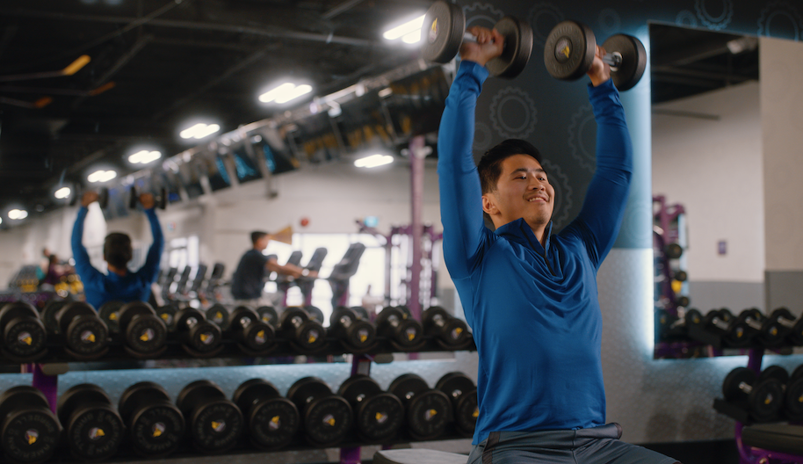
What is your gym routine?
I have always been a cardio queen, so it’s a lot of running. I usually go to the gym and do a round of squats, and some light arm work before hitting the treadmill for the remaining duration of my time there.
What does Pride month mean to you, and why is it so important for the LGBTQ+ community?
Pride Month means being simultaneously retrospective, but also looking forward. It’s important for the queer community, because it’s a yearly reminder of a few things.
First, be grateful for the activism of queer people who came before us, specifically the queer trans women of color who came before us.
Secondly, it should be a reminder to white queers specifically that our privilege is not erased by our queerness, and to continuously combat our own forms of internalized bigotry. It’s also a bittersweet reminder that while we celebrate as a community, there are still things happening in our world that are actively combating the existence of queer people.
It’s a reminder there is a lot more work to do.

